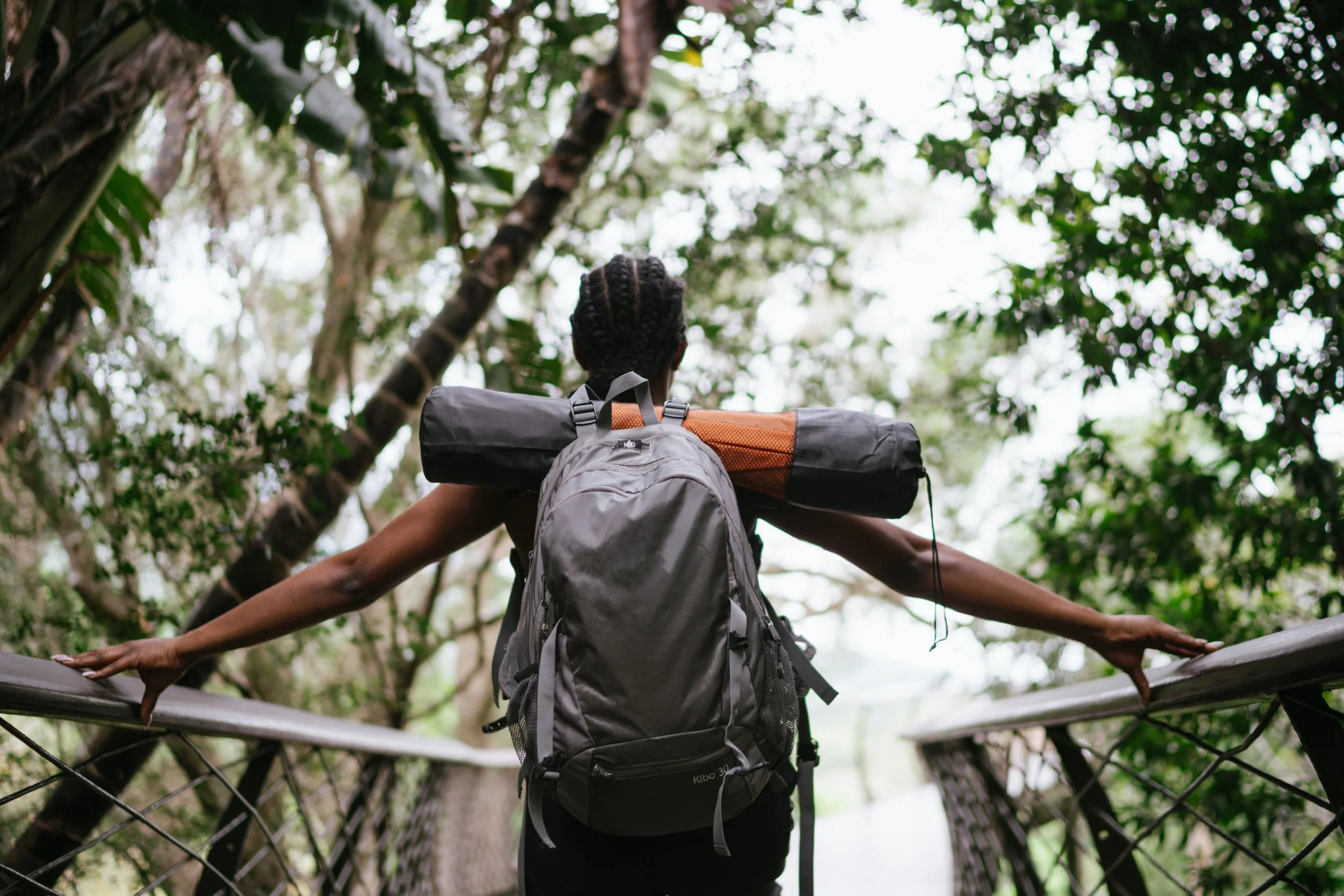If Lost Start Here is a guide for the anxious, curious, lonely and lost. Featuring everyday places and at-home prompts designed to help you live a life that feels good.
Together Finding Our Way
Nature
NATURE CAN BE FOR EVERYONE
While the connection between nature and our mental well-being is becoming an easier one to grasp, for some, it is still a hard one to put into action. As with all our approaches to living, we realize that nature isn’t one thing for all people. Yes, it can come with romantic longings, but we also need to understand that for some of us, the idea of nature comes with fear, with green fields that are intimidating or even unreachable.
The outdoors might, for the anxious (or just urban-oriented), signify aloneness, even threat, a countryside pathway as uncomfortable as any dark urban alley. Fairytales and folklore have long stoked the idea of danger lurking within the forests. Women and members of the LGBTQIA* community, too, have often struggled to stake their place in the great outdoors, with the freedom of trekking going hand in hand with perceptions of vulnerability and exclusion.
For people of color, nature can have complex associations, from a perception that ‘black people don’t hike’ to a natural landscape woven through with sites of enslavement and persecution, to issues around access and safety. A 2019 study found that Black and Asian people make up just 1% of visitors to National Parks. An understanding of the natural world — what it represents, its impacts on our psychological health, who gets to connect with it, and how — is deeply woven with issues of racial injustice.
Social inequalities reveal a lack of access to green spaces entirely (in the UK, 1 in 8 people don’t have a garden, and 11 million people in England have to walk more than 5 minutes to access green spaces). Even smaller increases in air pollution have been linked to depression. A recent report by Public Health England found that “The most economically deprived areas often have less available public greenspace, meaning people in those communities have fewer opportunities to reap the benefits.”
Here we’re listing some of the much-needed initiatives that are democratizing nature, articulating just these issues around race, class, and gender equity, by opening access for all and rewriting narratives that have kept nature for some of us and not all of us, for too long. Maybe they’ll help you get outdoors too?
UK
Black2Nature |Black Cyclists Network | Black Girls Hike | Black Trail Runners |Boots and Beards | Bristol Steppin Sistas | Diversity Van Life | Due East | Flock Together | Girls on Hills | Gutsy Girls | Mosaic Outdoors | Mount Noire | Muslim Hikers | Outdoor Lads | Peaks of Colour | Snow Camp Charity | Steppers |Walk4Health | Wanderers of Colour | The Wanderlust Women | We Go Outside Too | Wild in the City
Plus this amazing list by All the Elements that includes some of these and many, many others too
US
Aboriginal Outfitters | Abundant Life Adventure Club | Adaptive Climbing Group | Aspen Camp for the Deaf and Hard of Hearing | Bay Area Wilderness Training | Big City Mountaineers | Black Girls Climb | Black Girls Hike Buffalo | Black Girls Hike RVA | Black Girls Surf | Black Girls Trekkin | Brown Folks Fishing | Black Outside Inc. | Chill Foundation | ClimbUnited | Color the Trails | Cruxing in Color | Dillon Ojo Lifeline Foundation | Disabled Hiker | Diversify Outdoors | Get Out Stay Out | Girl Swirl | GirlTrek|Greening Youth Foundation | Hikeolution | Hispanic Access Foundation | Hoods to Woods Foundation | Indigenous Women Hike | Latino Outdoors | Latinx Hikers | LGBT+ Outdoors | Melanin Basecamp | Native Women’s Wilderness | Outdoor Afro | Outdoor Asian | Outdoors Empowered Network | Outdoor Outreach | Paradox Sports | Queer Climbing Collective | SheJumps | Shred Foundation | Soul Trak Outdoors | Stoked | The Venture Out Project | Trust for Public Land | Unlikely Hikers
Also see this list for more
Worldwide
Let us know about other projects that are looking to make nature more equitable so we can all access its benefits for our mental health and emotional well-being. We’re always adding to this list and hoping to share resources so we support one another to get outside in ways that feel good to all of us.

